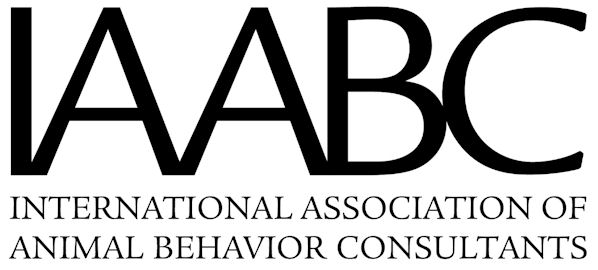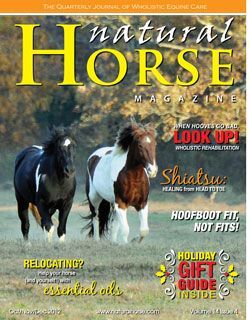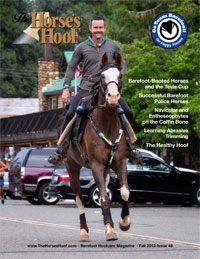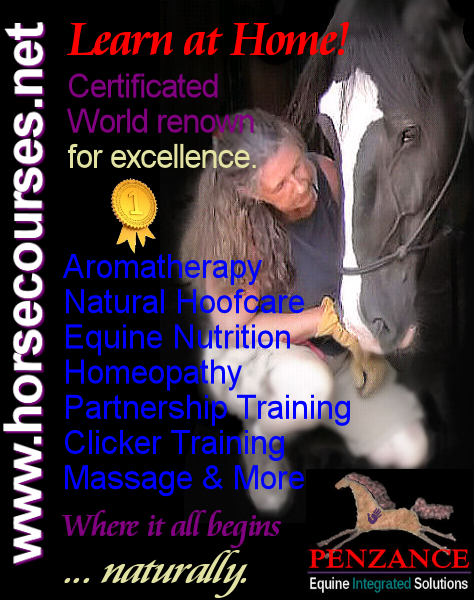Dealing with the Disrespectful Youngster
Jul 9, 2005 – © Gwenyth Browning Jones Santagate
On the subject of dealing with exuberant and disrespectful youngsters:
>>>Interesting theory but the human/horse emotions don’t seem to be the way round you say. My mares tell their foals off when they are naughty, they don’t ignore them. There are definitely ‘bosses’ in the different fields and their leader is not neccessarily the boss. All my herd follow my old mare about when grazing or going to the water trough and she is the least bossy one but the boss is the youngest mare and they all ‘respect’ her space.<<<
Well, as you said further on down, horses are different – some will “tell off their foals” and some will tolerate. It depends, doesn’t it? Your old mare is definitely the leader as you’ve described but the youngest mare sounds like she is the “boss”. Let me ask you a question – do the horses respect and listen to the old mare? Can she and does she make them move their feet? And yes, the boss is the youngest mare and they all “respect” her space but do they hang out with her? Do they scritch withers with her? Are they best buddies with her?
>>>I do agree with some aspects of the natural way as it has recently been termed but I think there are the two extremes…..one extreme that thinks a horse has always has a physical and mental problem to why it doesn’t do something and the other extreme of thinking there is no other way than by beating it. I think if you get the happy balance of the two and can see whether a horse is afraid/in pain OR if it is taking the P*ss. (can only use the human words as equines don’t have a voice box) If you can get a horse to trust and respect you it is the key and you need to be able to read the signs!<<<
Absolutely! It is essential to be able to read the differences and to act accordingly. That’s precisely why I said that it sounded as if this particular mare in question is acting out of fear. She’s the new horse in the barn. She’s obviously a sensitive horse. She doesn’t “know” the other horses or the humans. The environment around is not her space yet. This all equates to feelings of uncertainly and fear. The horse is a critter of habit. They also are critters of prey. Anything that causes discomfort to them instinctively triggers the flight/fight response. When we “train” horses, we teach them to think through this flight/fight response. This mare is “on alert” in her new environment and her flight instinct is kicked in but she can’t move her hooves cause there’s a human hangin’ on to them! More discomfort = more fear = no place to run = reactive behavior. In this case, rearing up and barging forward into flight.
Horses are horses but they are not all the same (just like people) some horses are very kind and some are nasty… it not always what a human has done to them! You can see it in their eyes and I have seen many horses come and go over the years and can tell if it’s their true nature or if it’s happened from bad handling. Same as not all murders have had a bad upbringing as a child .. some are just evil!<
Yes, not all are the same. Each horse is an individual BUT each one is also created upon a blueprint of survival. I probably have you beat in the “years” department .. been working and living with horses for almost 40 years so I, too, have seen many come and go. Once I fully embraced the behavioral base of Equus caballus I was able to understand and thus enter into a much deeper “relationship” with each horse I meet. I am an Equine Professional so meet alot of horses. The “behavioral base” of which I’ve written here doesn’t change from horse to horse to horse BUT, the individual sensitivities and reactives do change with each horse. As you said, “you need to be able to read the signs”. … of each individual. And yes, I, too, have seen the two extremes from beatings to pleadings and neither one works because the human is reacting according to human behaviors and not from the viewpoint of the horse. There are always REASONS for a horse’s behavior … horses’s do not waste either physical nor mental energy. Humans do alot of both. 😉 We also have to realize even more deeply that we are NOT horses, we are outpowered and outsized tremendously and even though our little “beatings” such as kicking or punching or hitting may not physically harm the horse, the harm it does to the psyche of the animal is far worse. This type of human behavior is also based on “fear” … fear of being out of control. RARELY, if the human is understanding of true equine behavior, will a human be attacked by a horse in a life threatening situation in which case one needs to do WHATEVER to remain safe! In my years I’ve only met 3 horses who I had to physically counter attack and all I can say is I damned lucky I’m still alive. *MY* survival instinct kicked in and I thought of nothing else BUT surviving! Did I physically damage the horse? Not a chance. Did I change the horses’ thinking … nope; not while MY thinking was in survival. Was I able to go back and work with and teach the horses with a different mind set than that of ’survival’? With two, yes and they are wonderful horses now. The third is almost at the point of being irredeemable with its present owners and will probably end up being put down, fairly. The horse is not a healthy animal mentally. 3 in the course of almost 40 years.
I will state again that there is no good or bad behavior in equine terms. The judgement of what’s good or bad is a human one. Young horses are young horses and the older ones will ***fairly and justly*** teach the youngsters (notice the word “teach”, too, please) what is acceptable behavior and what is not. To us, that may mean good or bad but to the horse it may mean the difference between survival or death. That is the driving instinct of a prey animal. Any horse that is “evil” IS either driven that way by humans or genetically altered psychologically in some manner either through poor breeding practices or organic diseases. And I do mean ‘E-V-I-L’ … those horses that are horrifically out of sync with themselves, with their environment and will unprovokeably attack other horses and humans. If its not an organic reason then it is a human-made reason (for the domestic horse). The attacks are always based in fear, originally. Always unless there is an organic short somewhere in the brain. These animals are truly dangerous and need to be put down.
“Ann”, you sound like an intelligent young woman. One who can go far with the horse. There are many experts out there who have lots to share from their own studies and experiences. One person who stands out in my mind as one of the top animal behavioral experts is Temple Grandin. Her last book, entitled, “Animals in Translation” is an excellent resource on animal behavior. On the more ethereal side is “Tao of Equus” by Linda Kohanov and also her sequel, “Riding Between Two Worlds”. Linda’s books are not scientific by any means and depending on where the reader is can be a bit overwhelming or too “deep”. The insights, however, are pretty thought inspiring. There are many others, far too many to list. Learning from both the scientific experts and the “training” experts will lend a smooth balance if the information is tucked in your own heart and gut to use as you, personally, find what works for you and what doesn’t. As you say, too, never stop learning … Education is a gift that can never be stolen from you and can only cause growth. Also “seek out wisdom” so you know what to do with all that knowledge! 😉
The copyright of the article Dealing with the Disrespectful Youngster in “Horsemanship” is owned by Gwenyth Browning Jones Santagate. Permission to republish Dealing with the Disrespectful Youngster in print or online must be granted by the author in writing.











One thought on “Dealing with the Disrespectful Youngster – A conversation.”